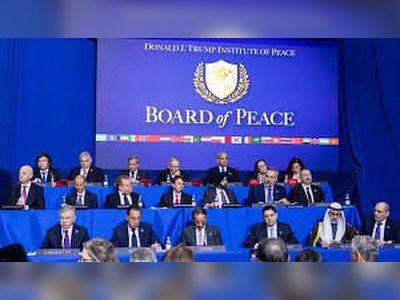
Hong Kong Confirms New Regulatory Licensing Regime for Virtual Asset Exchanges
On 21 May 2021, the Hong Kong Financial Services and the Treasury Bureau (FSTB) issued its consultation conclusions (Conclusions) on the introduction of a new regulatory framework in Hong Kong to licence and regulate virtual asset exchange (VA Exchange) operators.
New regulatory framework
The Conclusions adopt most of the proposals set out in the FSTB’s November 2020 consultation paper (Consultation Paper), as summarized in our Client Alert “Hong Kong Consults on a New Licensing Regime to Regulate Virtual Assets Exchanges”.
Consistent with the proposals in the Consultation Paper, the Conclusions provide that:
* The operation of a VA Exchange will be a regulated virtual asset activity under the Anti-Money Laundering and Counter-Terrorist Financing Ordinance (AMLO) and persons operating a VA Exchange will require a virtual asset service provider (VASP) licence from the Securities and Futures Commission (SFC).
* A VA Exchange is defined as any trading platform that is operated for the purpose of allowing an offer or invitation to be made to buy or sell any virtual asset in exchange for any money or any virtual asset, and which comes into custody, control, power, or possession of, or over, any money or any virtual asset at any point in time during its course of business.
* Any VA Exchange that is already regulated as a licensed corporation under the voluntary opt-in regime supervised by the SFC pursuant to the Securities and Futures Ordinance (SFO) (i.e., exchanges that facilitate trading in at least one security virtual asset) will be exempt from the new regime. (Further details on the opt-in regime are summarized in our Blog Post “Hong Kong FinTech Week: Day 1 in review”.) Decentralized virtual asset exchanges and other peer-to-peer trading platforms would also not be covered by the definition of a VA Exchange, provided that virtual asset transactions are conducted outside the platform and the platform is not involved in the underlying transaction by coming into possession of any money or any virtual asset at any point in time.
* The term “virtual asset” is broadly defined to mean a digital representation of value that (i) is expressed as a unit of account or a store of economic value; (ii) functions (or is intended to function) as a medium of exchange accepted by the public as payment for goods or services, or for the discharge of a debt, or for investment purposes; and (iii) can be transferred, stored, or traded electronically. Central bank digital currencies, financial assets regulated under the SFO (e.g., security tokens), and stored value facilities (which are regulated by the Hong Kong Monetary Authority) are excluded from the definition of virtual assets.
* Licensed VA Exchange operators will be subject to the anti-money laundering and counter-terrorist financing requirements stipulated under AMLO and other regulatory requirements. The SFC will conduct a separate consultation on these regulatory requirements before the commencement of the new regulatory regime.
* Licensed VA Exchanges initially may only offer their services to “professional investors,” meaning high net-worth individuals with a portfolio of at least HK$8 million (around US$1 million), corporations with portfolios of at least HK$8 million or total assets of at least HK$40 million (around US$5.16 million), or institutional investors such as licensed banks, broker-dealers, and asset managers. Retail customers (i.e., non-professional investors) may not trade virtual assets with VA Exchanges licensed under the new regime.
The FSTB states that it will continue to monitor developments and review its position as the virtual asset market in Hong Kong becomes more mature in the future, implying that the exclusion of the retail market is temporary and part of a longer-term implementation process, but without providing any indicative timeline for broadening the regime to include retail investors.
Notably, virtual asset holdings do not count towards the portfolio/assets of a person for the purposes of professional investor classification in Hong Kong (as only securities and certain deposits are counted towards the portfolio/assets of a person). Accordingly, VA Exchange customers that only hold virtual assets and do not have securities or deposits meeting the relevant threshold may not meet the definition of a professional investor.
* Any person who is not a licensed VA Exchange operator is prohibited from actively marketing, whether in Hong Kong or elsewhere, to the public of Hong Kong a regulated virtual asset activity or a similar activity elsewhere.
The Conclusions have refined and expanded the eligibility criteria of VA Exchanges that can apply for a licence. Under the initial proposal, only Hong Kong incorporated companies with a permanent place of business in Hong Kong would be considered for a VASP licence. The Conclusions expand the eligibility criteria to include companies incorporated outside Hong Kong but registered in Hong Kong under the Companies Ordinance.
In practice, this means that offshore VA Exchanges do not need to incorporate a new Hong Kong company in order to apply for a VASP licence. Instead, offshore VA Exchanges can establish a place of business in Hong Kong with their existing offshore entity (i.e., a branch), register such entity with the Hong Kong Companies Registry and apply for a VASP licence as a Hong Kong branch of the offshore company.
Implications for market participants
VA Exchanges
The new regulatory framework will have an impact on how Hong Kong and offshore VA Exchanges operate. VA Exchanges should assess whether they fall within the regulatory perimeter of the new regulatory framework, and, if they do require a VASP license, monitor further proposals from the SFC in relation to the licensing requirements.
Some issues that VA Exchanges should begin to consider include:
* VA Exchanges operating in Hong Kong and currently servicing retail customers should consider the steps they should take to off-board retail customers in an orderly manner once the new regulatory regime comes into effect.
* Offshore VA Exchanges should consider whether they fall within the territorial scope of the new regulatory framework. In particular, offshore VA Exchanges should consider whether the availability of their VA Exchange to Hong Kong persons under their current marketing and distribution channels (e.g., through an app store that is accessible by the Hong Kong public) could potentially constitute active marketing of services to the Hong Kong public.
* Offshore VA Exchanges that intend to actively market their services to the Hong Kong public after the new regulatory regime is in effect should start to consider their future Hong Kong business structure (i.e., operating through a newly incorporated Hong Kong company or through a registered Hong Kong branch of the offshore company).
VA Exchange customers
As licensed VA Exchanges can only provide services to professional investors, Hong Kong retail customers will effectively be prohibited from accessing licensed VA Exchanges’ services once the new regulatory framework is in effect.
The Conclusions, however, do not provide additional guidance on how retail customers may trade in virtual assets or exit their virtual asset positions under the new regulatory regime. Based on the scope of the new regulatory framework, it appears that retail customers could continue to trade in virtual assets through (i) peer-to-peer trading platforms, which are excluded from the new regulatory regime; (ii) overseas VA Exchanges, if the retail customers have sought out these exchanges on their own initiative without any active marketing by the exchanges (i.e., on a reverse solicited basis); and/or (iii) over-the-counter virtual asset brokerage firms that do not meet the definition of an VA Exchange. Retail customers should continue to monitor regulatory developments in this area.
Next steps and timing
The FSTB will prepare an amendment bill to the AMLO based on the Conclusions and target to introduce the bill to the Legislative Council during the 2021-2022 legislative session (which runs from October 2021 until the summer recess in July 2022).
Upon commencement of the new regulatory regime (likely during 2022), market participants will be provided with a transitional period of 180 days (Transitional Period) to comply with the new requirements. Market participants should continue to monitor additional guidance in relation to the Transitional Period, as there is some ambiguity whether the Transitional Period is intended to be the period in which applicants must file their applications with the SFC or the period during which they must receive a licence from the SFC.




